Filter by

Practitioner's Guide to Legal Issues in Organizations
Memberikan panduan praktis dan spesifik yang dapat digunakan baik dalam lingkungan akademis maupun sebagai pedoman untuk menangani masalah organisasi yang nyata, Ditulis untuk audiens praktisi I / O dan untuk audiens yang lebih luas yang tertarik dengan masalah litigasi ketenagakerjaan, Setiap bab berfokus pada masalah hukum tertentu
- Edition
- -
- ISBN/ISSN
- 978-3-319-11143-8
- Collation
- -
- Series Title
- -
- Call Number
- 340.06 HAM p

Practical Boundary Surveying; Legal and Technical Principles
"Survei Batas Praktis; Prinsip Hukum dan Teknis" adalah buku yang berfokus pada prinsip dan praktik survei batas. Bidang ini melibatkan pengukuran dan demarkasi batas-batas properti, yang merupakan aspek penting dari kepemilikan tanah, transaksi real estat, dan pengembangan properti. Buku ini kemungkinan mencakup berbagai topik, termasuk peraturan hukum, metode survei teknis, dan prinsip-prinsi…
- Edition
- -
- ISBN/ISSN
- 978-3-319-07158-9
- Collation
- -
- Series Title
- -
- Call Number
- 346.044 GAY p
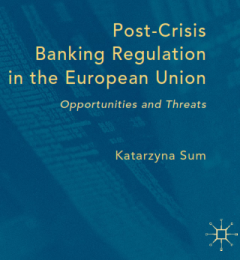
Post-Crisis Banking Regulation in the European Union; Opportunities and Threats
Krisis keuangan baru-baru ini mengungkapkan kelemahan substansial dalam kerangka peraturan perbankan Uni Eropa (UE). Regulasi sebelum krisis dibangun terutama berdasarkan pedoman Basel II dan aturan-aturan yang diselaraskan untuk bank-bank Uni Eropa berdasarkan Petunjuk Perbankan Kedua dan Rencana Aksi Jasa Keuangan. Solusi regulasi tersebut ternyata tidak cukup untuk mencegah ledakan kredit ya…
- Edition
- -
- ISBN/ISSN
- 978-3-319-41378-5
- Collation
- -
- Series Title
- -
- Call Number
- 346.082 SUM p
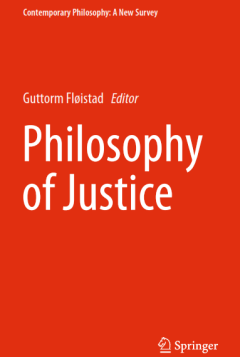
Philosophy of Justice
Volume ini adalah yang terakhir dari seri Contemporary Philosophy. Seperti jilid-jilid sebelumnya dalam seri ini, the present chronicles dimaksudkan untuk memberikan survei tentang tren signifikan dalam filsafat kontemporer. Kebutuhan akan survei semacam itu, menurut saya, meningkat daripada menurun selama bertahun-tahun. Adegan filosofis muncul, karena berbagai alasan, lebih kompleks dari sebe…
- Edition
- Vol. 12
- ISBN/ISSN
- 978-94-017-9175-5
- Collation
- -
- Series Title
- Contemporary Philosophy: A New Survey (COPH)
- Call Number
- 340.114 FLO p

Pharmaceutical Regulatory Environment; Challenges and Opportunities in the Gu…
Selama dekade terakhir, penulis buku ini telah bekerja sama erat dengan otoritas pengatur di banyak Pasar Negara Berkembang dan dengan Industri Farmasi untuk mengembangkan pemahaman yang lebih baik tentang aspirasi, hambatan, dan prioritas peraturan yang memengaruhi tinjauan dan ketersediaan. obat-obatan baru di luar wilayah ICH. Salah satu kunci menuju masa depan adalah kemungkinan Tinjauan Re…
- Edition
- -
- ISBN/ISSN
- 978-3-319-17590-4
- Collation
- -
- Series Title
- -
- Call Number
- 344.0416 ESS p
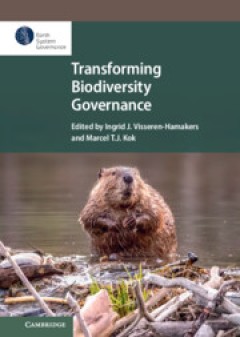
Transforming Biodiversity Governance
Lebih dari lima puluh tahun konservasi global telah gagal membengkokkan kurva hilangnya keanekaragaman hayati, jadi kita perlu mengubah cara kita mengatur keanekaragaman hayati. Konvensi PBB tentang Keanekaragaman Hayati bertujuan untuk mengembangkan dan menerapkan kerangka kerja transformatif selama beberapa dekade mendatang.Namun, pertanyaan tentang apa yang dimaksud dengan tata kelola keanek…
- Edition
- -
- ISBN/ISSN
- 9781108856348
- Collation
- -
- Series Title
- -
- Call Number
- T 346.04695 HAM t c

Trademark and Unfair Competition Conflicts: Historical-Comparative, Doctrinal…
Dengan maraknya pemasaran internet dan e-commerce di seluruh dunia, konflik internasional dan lintas batas dalam merek dagang dan undang-undang persaingan tidak sehat menjadi semakin penting. Dalam karya terobosan ini, Tim Dornis-yang, selain pengejaran ilmiahnya, telah bekerja sebagai pengacara, jaksa penuntut umum, dan hakim, memberinya pengalaman di yurisdiksi hukum perdata dan hukum adat-me…
- Edition
- -
- ISBN/ISSN
- 9781316651285
- Collation
- -
- Series Title
- -
- Call Number
- T 346.0488 DOR t c
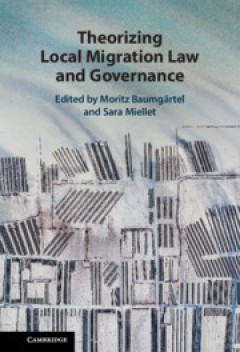
Theorizing Local Migration Law and Governance
Di banyak wilayah di seluruh dunia, tata kelola migrasi semakin melibatkan otoritas dan aktor lokal. Volume yang diedit ini memperkenalkan kontribusi teoretis yang, berangkat dari 'perubahan lokal' dalam studi migrasi, menyoroti peran berbeda yang dimainkan oleh proses hukum, debat, dan instrumen dalam mendorong perkembangan ini. Berdasarkan studi kasus historis dan kontemporer, ini menunjukkan…
- Edition
- -
- ISBN/ISSN
- 9781009047661
- Collation
- -
- Series Title
- -
- Call Number
- T 342.08 BAU t c

The Theory, Practice, and Interpretation of Customary International Law
Meskipun hukum adat internasional (CIL) telah menjadi pusat hukum internasional sejak awal, hal ini sering disalahpahami. Volume yang diedit ini memecahkan masalah tersebut dengan menelusuri sejarah CIL, dan memberikan studi mendalam tentang teori, praktik, dan interpretasinya. Bab-babnya membahas pertanyaan-pertanyaan besar yang melingkupi sumber hukum internasional ini seperti: apa aturan yan…
- Edition
- -
- ISBN/ISSN
- 9781009025416
- Collation
- -
- Series Title
- -
- Call Number
- T 341.01 MER t c
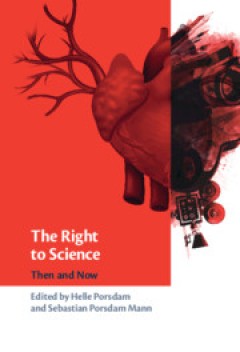
The Right to Science: Then and Now
Bahwa setiap orang memiliki hak asasi manusia untuk menikmati manfaat dari kemajuan ilmu pengetahuan dan penerapannya mengejutkan banyak orang. Namun demikian, hak ini berkaitan dengan berbagai masalah di persimpangan sains dan masyarakat: akses terbuka; sains "penggunaan ganda"; akses ke kepemilikan dan penyebaran data, pengetahuan, metode dan kemampuan serta penerapannya; serta peran kerja sa…
- Edition
- -
- ISBN/ISSN
- 9781108776301
- Collation
- -
- Series Title
- -
- Call Number
- T 341.48 POR r c
 Computer Science, Information & General Works
Computer Science, Information & General Works  Philosophy & Psychology
Philosophy & Psychology  Religion
Religion  Social Sciences
Social Sciences  Language
Language  Pure Science
Pure Science  Applied Sciences
Applied Sciences  Art & Recreation
Art & Recreation  Literature
Literature  History & Geography
History & Geography